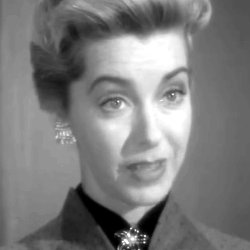
The idea was to interview someone who had worked with “everybody” – someone who had, through episodic appearances on TV, met up with most of the supporting cast players of his or her era. It was an eye-opener to come up against the reality of just how disjointed it is to work in film and television.
I was able, through a loyal reader of this site, to find Marsha Hunt – a lovely veteran of Hollywood with a notable history that veered in and out of the various traffic lanes of an actor’s career. She was well into her 90s when I interviewed her and is now 103 years old. She is enduringly lucid, intellectual, and fascinating.
She talked about her unique career story which, on its downside, is an undeniable blackeye that Hollywood gave itself. On it’s upside, her life of work is rich in associations with many staples of the supporting player community and she shares some reminiscences of them here.
To place Marsha Hunt briefly within context: She was signed by Paramount Studios quickly after her initial arrival in Hollywood and given the female lead in a movie titled The Virginia Judge in 1935. A few dozen starring roles sailed along, one after the other. Then, in the late 1940s, Hunt took a flight to Washington DC with a group of morally driven actors to make speeches and a radio broadcast in defense of other artists and writers whose careers and lives were damaged or destroyed during McCarthyism and the Communist Scare that descended on the nation and centered on the cinema industry. Upon returning to Hollywood and refusing to “repent” for her actions, she was blacklisted. That put an end to her big-screen career. Recovery came through work on stage and an almost immediate transition to prolific casting on TV. She is the author of The Way We Wore: Styles of the 1930s and 40s and Our World Since Then and is, today, a celebrated humanitarian, an essential footnote in Hollywood history, and a gracious survivor of Tinsel Town chaos.
I brought up names to Marsha – names of supporting actors who had made guest appearances along with her in the same episodes of various TV series. Names like Charles Lane, Sheppard Strudwick, John Anderson, Lois Nettleton, Paul Richards, Eduard Franz, and the ill-fated Diana Hyland who co-starred with her in a striking Twilight Zone segment. Some she recalled vividly (as you’ll find with the “On Being in The Twilight Zone” story up ahead). Some were vague recollections. Some lit no lightbulb at all.
Elaborating on her comment quoted in the “Winter 2014-2015” entry on the TV Cast Notes page, Marsha described what it’s like working as guest artists on the set of a TV show. “You have about a three day exposure during which you only look at each other when you’re performing. Your face is in the script,” she said, “and you’re getting used to the props you’re going to handle and which door to come in and where to sit and stand. There’s so much to absorb – and do from memory when it’s air time – you don’t really get to look at each other’s faces except in the course of a scene. If I didn’t have scenes with them, we never even met.”
Here – in no particular order – are Marsha Hunt’s first-hand recollections about working alongside some of the people whose faces have very likely given each of us a satisfying feeling of recognition all our lives. She confessed, “You get so much attention as an actor, your ego is fed beyond reason. It’s all quite wonderful,” she said and then settled in adding, “but the balance is, it’s lovely to take your mind off yourself and talk about everybody else.”
On Harold J. Stone
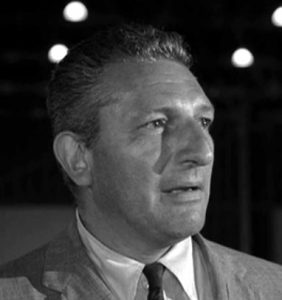
When asked about the widely-recognizable Claude Akins – who shared billing with Marsha in an episode of a little-remembered TV drama series, The Outsider, in 1968 – and the venerable character actor Paul Fix – who appeared in two movies with her in the 1930s – Ms. Hunt’s reaction was pretty much the same; “Oh, these familiar names,” she mused, “but I can’t put a face to that.” To the mention of the name of Karl Swenson, who was cast with her in a 1964 segment of the series Profiles in Courage she declared, “Again it has a familiar ring. But I don’t picture the person.” Then we struck a tiny vein of gold with Harold J. Stone. “Yes, a New Yorker?” she sort of asked. He is, indeed; and unlike Marsha, who was reared in Manhattan, New York is written all over Stone. “I do remember that we did at least one thing together.” In fact, they did two together – a 1959 episode of a TV series called The Grand Jury and, more reverberantly, the two played husband and wife in an early dramatic exploration of autism titled And James Was a Very Small Snail that aired in 1963.
On William Schallert
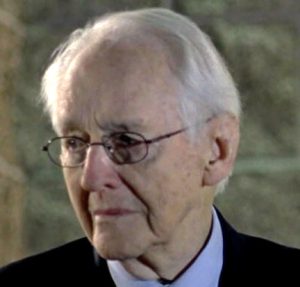 William Schallert passed away a few years ago – well after my interview with Marsha – but he appeared on virtually every TV show ever produced – ever! And that’s only a slight exaggeration. He was already in his 90s when he appeared in an episode of Two Broke Girls, and he’s pictured here in an uncharacteristically pensive William Schallert moment in a segment of True Blood where he was a regular from 2008 to 2011. There was no hesitation from Marsha when Schallet’s name came up. They worked together in a 1959 installment of the series Checkmate but it was his father, Edwin Schallert – former drama editor of the Los Angeles Times – whom she spoke of first. “Ed Schallert reviewed a lot of movies I was in in those first days,” she said, “but Bill toured with me in the only play I ever toured in, The Cocktail Party by T. S. Eliot,” in 1951. She goes on to mention two other members of that tour – vintage Hollywood favorite Vincent Price, whom she referred to as “Vinnie,” and lovable TV supporting cast actress Estelle Winwood. “Very colorful lady,” Hunt recounted and then repeated, “very colorful.” Returning to William Schallert, Marsha summarized him in the loveliest way: “He is a fine man and a good actor and I like him.”
William Schallert passed away a few years ago – well after my interview with Marsha – but he appeared on virtually every TV show ever produced – ever! And that’s only a slight exaggeration. He was already in his 90s when he appeared in an episode of Two Broke Girls, and he’s pictured here in an uncharacteristically pensive William Schallert moment in a segment of True Blood where he was a regular from 2008 to 2011. There was no hesitation from Marsha when Schallet’s name came up. They worked together in a 1959 installment of the series Checkmate but it was his father, Edwin Schallert – former drama editor of the Los Angeles Times – whom she spoke of first. “Ed Schallert reviewed a lot of movies I was in in those first days,” she said, “but Bill toured with me in the only play I ever toured in, The Cocktail Party by T. S. Eliot,” in 1951. She goes on to mention two other members of that tour – vintage Hollywood favorite Vincent Price, whom she referred to as “Vinnie,” and lovable TV supporting cast actress Estelle Winwood. “Very colorful lady,” Hunt recounted and then repeated, “very colorful.” Returning to William Schallert, Marsha summarized him in the loveliest way: “He is a fine man and a good actor and I like him.”
On Whit Bissell and John Anderson
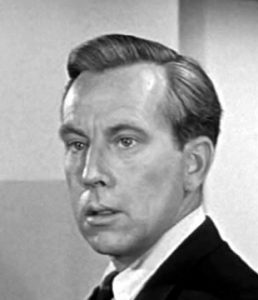 The noir film Raw Deal, released in 1948, culled a marvelous collection of actors. Marsha described it as having, “no happy ending for a single member of the cast. Now, that’s as ‘noir’ as you can get,” she said. She made that film just at the pivotal point in her life that led to her blacklisting and ended her film career. So her memories of working with actor Whit Bissell, who played a pitiable character billed as “Murderer” in Raw Deal, are blurred by the dark turmoil. Yet, she recalled his being, “a fine actor – very busy, but not famous.”
The noir film Raw Deal, released in 1948, culled a marvelous collection of actors. Marsha described it as having, “no happy ending for a single member of the cast. Now, that’s as ‘noir’ as you can get,” she said. She made that film just at the pivotal point in her life that led to her blacklisting and ended her film career. So her memories of working with actor Whit Bissell, who played a pitiable character billed as “Murderer” in Raw Deal, are blurred by the dark turmoil. Yet, she recalled his being, “a fine actor – very busy, but not famous.”
“A close friend of Whit Bissell’s was John Anderson. Do you place him?” she asks me. When I hear this I tell her that I ADORE John Anderson (and almost every one of his hundreds of screen appearances). “Well, so did I,” she tells me. “I was doing a film at Twentieth. I was in the lunch room with some of the cast at a fairly large table and along came an actor who said, ‘Do you mind if I join you, there isn’t a free seat in the place except at your table.’ We said sure, join us and it was John Anderson. We got to talking, he was speaking about the West 80s in Manhattan which is where I grew up.” As with Harold J. Stone, New York City was a common bond. “We discovered we lived not far from each other,” she went on. “I loved his wife, he loved my husband.” Marsha was lovingly married to screenwriter Robert Presnell, Jr. “We became a foursome. And then when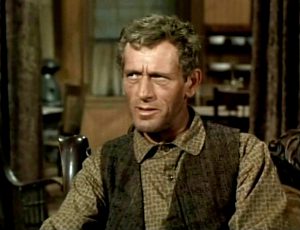 my Robert died the Andersons looked after me. They made sure that I still went to movies and didn’t have to go alone. Then when Mrs. Anderson died, John and I became a pair of the best and closest of friends.”
my Robert died the Andersons looked after me. They made sure that I still went to movies and didn’t have to go alone. Then when Mrs. Anderson died, John and I became a pair of the best and closest of friends.”
“He would go to see Whit Bissell out at the Motion Picture Country Home and I went with him a couple of times. That was the first time I really got acquainted with Whit Bissell.” (It is notable that despite the fact that Bissell was confined to the Motion Picture Country Home late in his life, he outlived his visitor. Bissell exited in 1996 at age 86, four years after Anderson in 1992 at the much younger age of 69.)
On Charles Lane
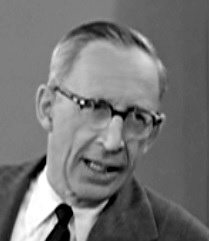 Mention of the awesome Charles Lane, who lived to be 102, brightens Hunt’s reminiscing. “Oh, Charles Lane I did know, and remember, and work with a dozen times,” she said. “He worked in everything!” When asked if she recalled anything specific they worked in together she said, “No. It’s one great blend.” (Surprisingly, in spite of the large bodies of work both actors had in television, I could find only two instances of their working together on-screen and both were films – one in 1936 and another in 1940. Marsha did recall being with Lane onstage at the Pasadena Playhouse.)
Mention of the awesome Charles Lane, who lived to be 102, brightens Hunt’s reminiscing. “Oh, Charles Lane I did know, and remember, and work with a dozen times,” she said. “He worked in everything!” When asked if she recalled anything specific they worked in together she said, “No. It’s one great blend.” (Surprisingly, in spite of the large bodies of work both actors had in television, I could find only two instances of their working together on-screen and both were films – one in 1936 and another in 1940. Marsha did recall being with Lane onstage at the Pasadena Playhouse.)
On Jeannette Nolan
To be honest, I must say that Jeanette Nolan – who appeared in one movie alongside Hunt, The Happy Time 1952 – is probably too name-recognizable to be highlighted here (as is James Whitmore, followin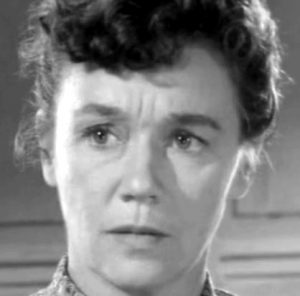 g next). But Marsha was so rapturous about Nolan that I had to include her. “Oh, Jeanette Nolan could play everything. Could and did,” said Hunt. “She had that Jeanette Nolan chameleon kind of voice. She was one of the great actresses of radio. My husband, Robert, did a lot of radio directing and writing before he came into screenwriting and came out here. But in New York he knew Jeanette Nolan and her husband,” she gropes for a moment for the name, “John McIntire.” Between them they played dozens of roles.” Nolan was just about equally prolific on TV.
g next). But Marsha was so rapturous about Nolan that I had to include her. “Oh, Jeanette Nolan could play everything. Could and did,” said Hunt. “She had that Jeanette Nolan chameleon kind of voice. She was one of the great actresses of radio. My husband, Robert, did a lot of radio directing and writing before he came into screenwriting and came out here. But in New York he knew Jeanette Nolan and her husband,” she gropes for a moment for the name, “John McIntire.” Between them they played dozens of roles.” Nolan was just about equally prolific on TV.
Think television work is crazy? Radio was crazier. “They worked themselves on five shows a day and just skated from CBS to ABC to NBC hitting all their marks on time to be on all those different shows. And then, after that they would join hands,” the pace of her speech changes here, “and go to, I think, it was Montana where there was a large country home where they didn’t see a neighbor, they didn’t have a schedule and they had a lovely respite of country life. And then they would return to New York and radio’s rat race. They were a wonderful pair.”
On James Whitmore
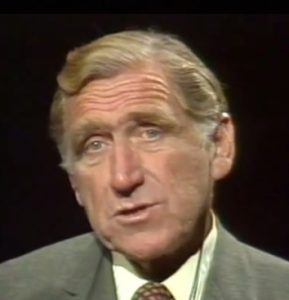 As I warned, here is probably another too-name-recognizable supporting player to be profiled here but as, “Jim Whitmore was a good friend,” to Marsha and he was, as she praised, “a fine actor,” here are her fond recollections of him. “I knew him best through the Gombergs.” Marsha is referring to screenwriter Sy Gomberg and his wife Maxine. “They had a beautiful spread-out estate of a home and they gave their place for annual garden parties for the American Civil Liberties Union. All the liberals of Hollywood would gather every summer for this fund raiser and I would see Whitmore at their house again and again.”
As I warned, here is probably another too-name-recognizable supporting player to be profiled here but as, “Jim Whitmore was a good friend,” to Marsha and he was, as she praised, “a fine actor,” here are her fond recollections of him. “I knew him best through the Gombergs.” Marsha is referring to screenwriter Sy Gomberg and his wife Maxine. “They had a beautiful spread-out estate of a home and they gave their place for annual garden parties for the American Civil Liberties Union. All the liberals of Hollywood would gather every summer for this fund raiser and I would see Whitmore at their house again and again.”
Hunt served on the board of the Screen Actors Guild during 1946, in what she calls, “it’s ugliest year.” It was not a good time for liberals or humanitarians; the Red Scare was brewing and it was just a few years before Hunt’s harrowing blacklisting. “Because it was such a turning point in time in the industry I was asked, many years later, to come and speak to the Guild membership about those days.” She relates that as she was pulling up outside the building on Wilshire Boulevard where SAG is headquartered and there was James Whitmore. “I asked, ‘what are you doing here?’ and he said, ‘I came to hear you talk.’” With wonder still in her voice she said, “I couldn’t believe that Jim – who knew my story so well – would bother to come all those miles to sit and listen to me talk about it. I was very touched.”
Whitmore worked alongside Marsha in a 1959 segment of Checkmate and again, ten years later, in an installment of a TV series called Name of the Game. She spoke of the north Hollywood’s Whitmore-Lindley Theatre Center he founded in partnership with his wife, actress Audra Lindley who, among her numerous credits, is probably especially remembered for her spin with Norman Fell as the Ropers on the sitcom Three’s Company. She remembered once seeing James at a 3-day writer’s conference that he went to with Gomberg. “It was in the most beautiful place with the foam of the waves of the Pacific dashing against the rocks of the coast.” She said he came just because he loved the setting. “This is how I knew Jim. A very bright man, and so gifted.”
On Lois Nettleton
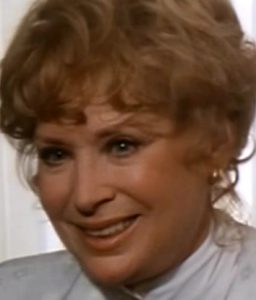 I didn’t like being the one to have to tell Marsha Hunt that the likable actress Lois Nettleton had died.
I didn’t like being the one to have to tell Marsha Hunt that the likable actress Lois Nettleton had died.
Nettleton is probably best remembered for her starring role in one of the most frequently aired episodes in the popular Twilight Zone marathons – the “Midnight Sun.” When I brought up her name there was an instant gush of an intake of breath from Marsha. “Oh, a lovely person,” she said, “a lovely person. We must have worked together on a television show,” they did, on two (a Studio One in 1950 and an episode of an NBC series titled Accidental Family in 1967). “We liked each other; we became friends,” she said, telling, of getting Lois’ mother to join the Motion Picture Mothers. Hunt’s and Nettleton’s mothers also became pals.
Of Lois, Marsha ruminated, “I just remember how much I liked her but it’s been such a long time.” She asked me for an update, “What can you tell me about Lois Nettleton?” And I had to tell her: Lois made her final exit six years before the interview with Marsha. Breathily, “Oh, she’s died,” she said. Then, in a very practical tone she remarked, “You know I’m outliving everybody.”
She had not outlived Mark Richman nor Richard Erdman at the time of the interview, though both have since left us.
On Mark Richman
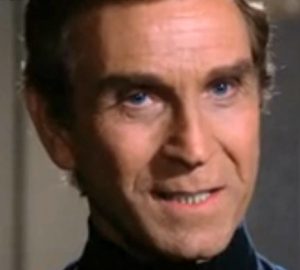 I recently realized that he reassigned his name to “Peter Mark Richman,” but Marsha recognized him the way I do – as just handsome Mark Richman. “I keep running across him. Way off in Sedona, Arizona…like a miniature Grand Canyon, I went to a party and there was Mark Richman.” She did recall appearing, “many years ago [1963],” on Cain’s Hundred, the TV series in which he starred. “We’ve coincided at several functions. I don’t know him but we say ‘Hi.’”
I recently realized that he reassigned his name to “Peter Mark Richman,” but Marsha recognized him the way I do – as just handsome Mark Richman. “I keep running across him. Way off in Sedona, Arizona…like a miniature Grand Canyon, I went to a party and there was Mark Richman.” She did recall appearing, “many years ago [1963],” on Cain’s Hundred, the TV series in which he starred. “We’ve coincided at several functions. I don’t know him but we say ‘Hi.’”
The world had to bid him farewell on January 14, 2021 when he was 93 years of age.
On Richard Erdman
Richard Erdman Erdman and Hunt worked together as recently as 2008 in a made-for-TV tribute to classic crime movies titled The Empire State Building Murders. Though it was a return to television for her after a nearly 20-year hiatus from screen work, Hunt was more interested in talking about her much earlier co-appearance with Erdman in the feel-good film The Happy Time (1952). She describes Richard Erdman as, “a very close friend. Dick is funny and lovely and very gifted.”
Marsha is delighted that her old friend, whose career stride never broke, recently garnered attention for his work on the droll, Emmy Award winning sitcom Community in which he played Leonard – an indomitable, non-traditional college student. (Among his nearly countless roles, I cannot help but remember him as a paparazzo in The Blue Gardenia (1953), and as the insufferable gabber with the magic stopwatch in a frequently aired Twilight Zone episode.)
When his name comes up a second time Marsha, again, chimes in with, “Dick is just so funny.” Marsha lost – no, we all lost – Richard Erdman in March of 2019. He was, like Mark Richman when he passed away a little less than two years later, 93 years old.
On Being in the Twilight Zone
“Just don’t name the episode,” Marsha bade me. “If you don’t name the episode, then people can’t look him up.” We laughed.
Whereas Marsha Hunt usually remembers very little about any given TV performance she ever did, by comparison, she recalls the Twilight Zone segment in bas-relief. She had just told me a little backstage dirt when we laughed about how protective she was being of someone’s identity. So, per her wishes, I will name neither the episode nor the director. (But how hard could it be to unravel?)
First of all, Marsha played the mother of the lead character portrayed by
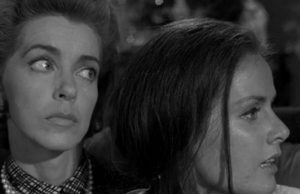
the haunting Diana Hyland. “She was a good actress, a lovely person. Died young,” at age 41. (Diana had been the girlfriend of the much-younger John Travolta who, I have heard, would never discuss her in interviews in all the years that have followed.) “She did a stunning job in that. It was the story of just a young woman who marries the wrong man.” She describes, “It has to do with drinking – alcoholism – and bad behavior. There’s this charging steed with hair in the wind and all.”
“I remember several dramatic things,” she says.
It was a small, tight cast. Roger Davis (pictured below, right, with actor Philip Ober, left), “was, I think, a new actor and he was a little unsure of his lines. And this director,” she recounted, “had found a victim. Jumped all over him. I hated his sadistic treatment of that poor young actor who was rendered incapable of doing anything because the director was so awful to him.” She explained that as the hours progressed, “I remember once I went to my room and [the director] came in and said, ‘We’re ready for you,’ and I said, ‘I’m sorry. Until you tell me that you will treat this poor actor more patiently, more kindly, we’re never going to get the scene.’ I had it out with him.”
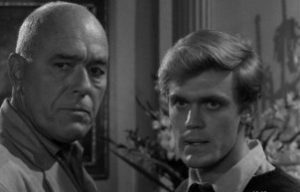
Philip Ober played Marsha’s husband and she recalled that he was married to Vivian Vance of I Love Lucy fame. “I knew him very slightly but pleasantly,” she says.
But on the set, “Things got worse and worse.” Hunt relates that she was making a professional stage appearance in a play at UCLA at the same time as the shooting, with the promise from the Twilight Zone crew that she would always be released in time to get to the theatre. By the final day of shooting they were not finished by quitting time. The TZ shooting had to be finished that day because the set had to be struck and another set had to be built for the next day. Huge amounts of money were at stake for having to pay forfeits. “There was no question but what I had to stay on the MGM lot where we were shooting it until finished.”
The characters age in the course of that TZ story and shooting finished in time for Marsha to rush from the filming, still in her age make-up and body padding, and reach the theater just as the audience was emptying the lobby to be seated for the start of the first act. She tip-toed in and ushers seated her in an empty aisle seat in the last row, reserved for such emergencies, “and I watched the performance of the play I was supposed to be in.” She told me this in measured speech, “Watched my understudy. It was a very strange experience,” she says with the sound of reminiscing in her voice.
At intermission, she raced to an office off the lobby to hide, downing a sandwich and a malt the ushers brought her for her dinner, and returned to her seat to witness the second act. (It was George Bernard Shaw’s Heartbreak House and Carroll O’Connor, not yet famous at the time, played her father.) She mused, “It’s the only performance on stage that I’ve ever missed.”
Marsha Hunt has an exceptional generosity of spirit. In asking me not to name the director of that TZ episode she said, “He might still be alive,” – he IS – “and he may have seen the light and become a much nicer person.” I may just always have to wonder. ~FW
<- Return to search